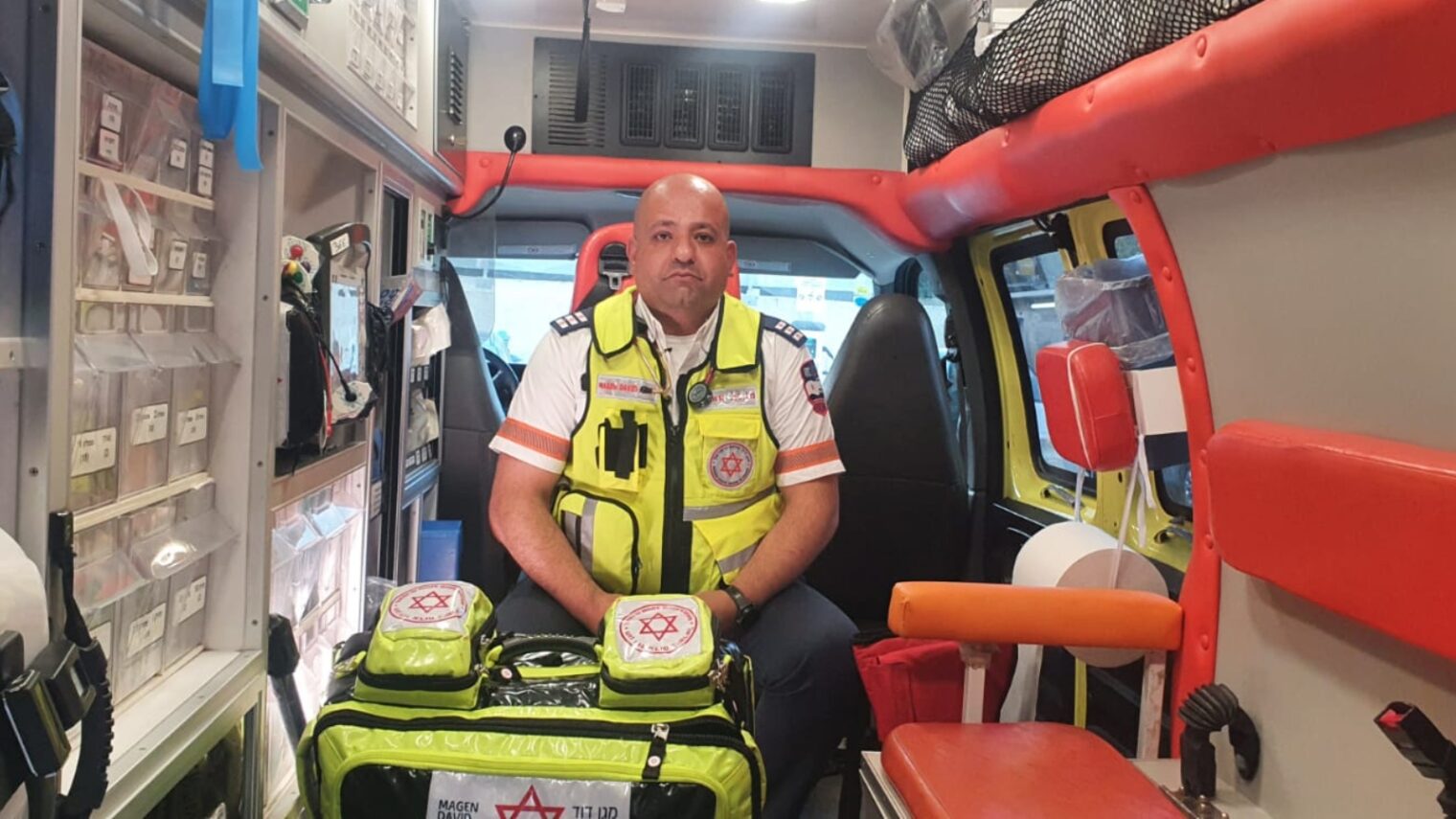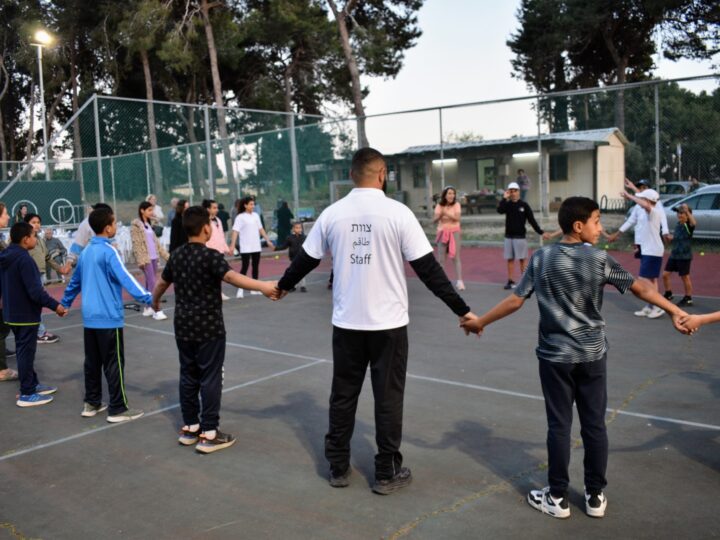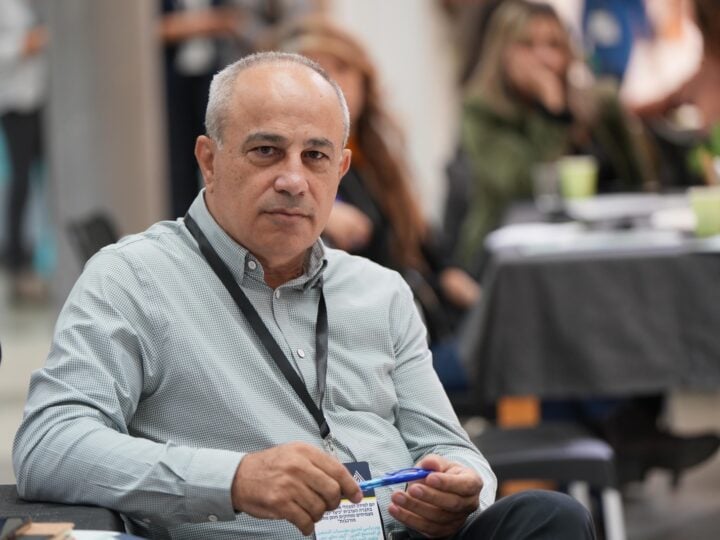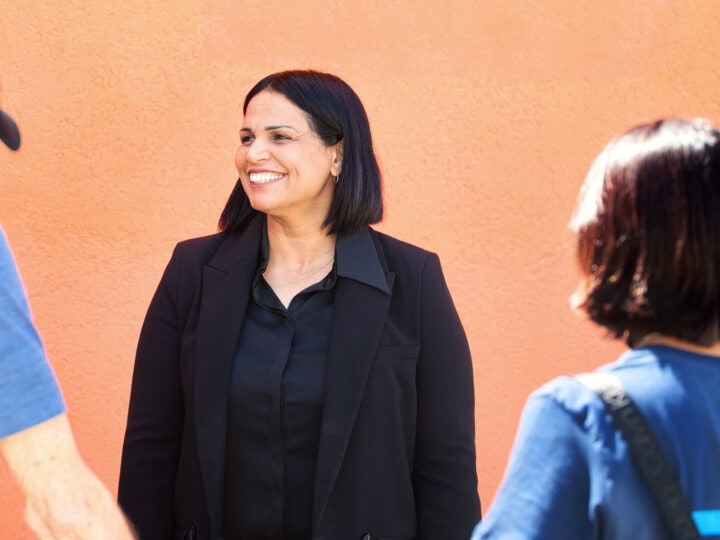Fadi Dekaidek was among the first emergency medical responders to the deadly terror attack by an Arab shooter outside a Jerusalem synagogue on the night of January 27.
“We saw a woman and four men lying on the street suffering from gunshots, without life signs. To our sorrow, we had to declare their death at the scene,” Dekaidek reported. “In addition, we treated five injured people, among them a 70-year-old woman and a 30-year-old man in critical condition.”
If anyone was surprised that this 38-year-old Magen David Adom paramedic is also an Arab, they’d be even more surprised to know that he was not the only Arab Israeli desperately trying to save lives at the gruesome scene.
And it’s not the first time he’s responded in the aftermath of an Arab-perpetrated terror attack. Unfortunately, it’s happened before in his 20 years with Israel’s national Red Cross organization.
“I’m an Arabic guy in Magen David Adom and I save lives of Jewish people,” he tells ISRAEL21c. “Of course, a lot of my Jewish friends in Magen David Adom save lives of Arabic people.”
Lots of Arab volunteers
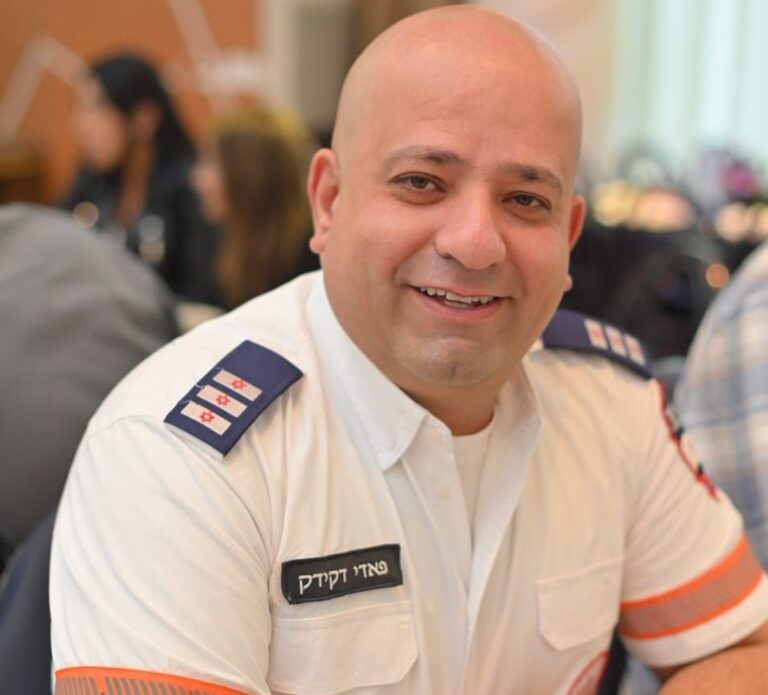
Dekaidek grew up in the eastern Jerusalem neighborhood of Shuafat, near his current home in Beit Hanina. These exclusively Arab communities are several kilometers southwest of Neve Ya’akov, the Jewish neighborhood where the shootings took place.
“I starting volunteering for Magen David Adom at 17 and then, after my father had a heart attack and I saw Jewish people save his life, I decided to continue,” explains the trilingual paramedic.
Dekaidek’s entire career has been with the emergency response organization. The crew he supervises draws from about 300 workers and volunteers, including 15 ambulance drivers and 115 teenage volunteers from Beit Hanina and other Arab communities in Jerusalem.
“There were lots of other Arab EMTs on the scene that night, a lot of from my [on-duty] team and others who came from their homes,” he says. “We have a lot of volunteers.”
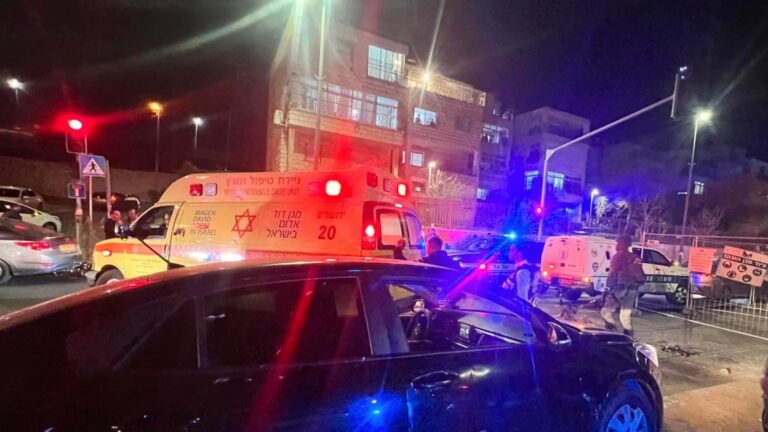
The attacker, a 21-year-old Jerusalem resident, was killed by police as Dekaidek and other responders from Magen David Adom and United Hatzalah worked together to tend those he had shot.
A United Hatazalah spokesperson said there were four Muslim Arab volunteers among more than 30 UH responders on the scene.
An example for the world
You might think Dekaidek has become hardened as a senior paramedic who’s treated casualties of many accidents and crimes. But that’s not so.
“That night, when I got back to my home, I still felt terrible and couldn’t sleep,” he says. “When you see a lot of bodies and multiple victims with blood all over them, it’s not easy.”
In addition to the wounded, seven people lost their lives in the attack, ranging in age from 14 to 68.
Dekaidek recalls going from victim to victim, performing CPR and other techniques to treat wounds and preserve lives.
“We used every skill we’ve learned,” he says.
Although first responders often find themselves in dangerous situations, Dekaidek says his family, friends and neighbors are supportive of his career with Israel’s emergency response network.
“I think all the people in east Jerusalem think we do a good job to save lives and help people,” he says.
Arabs and Jews joining forces for the good of others, he said, “is an example for the whole world” and he hopes his own children will follow in his footsteps.




